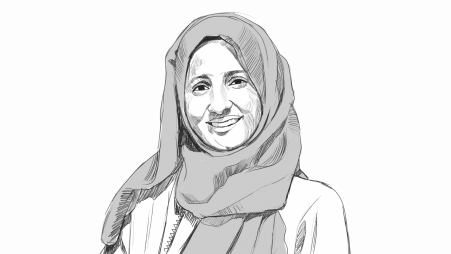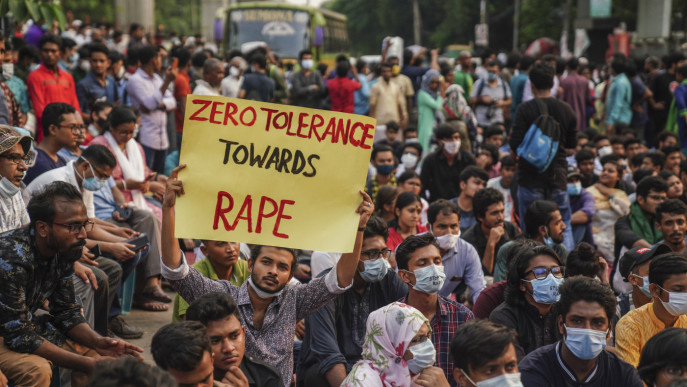Our right to assemble on the streets of Bangladesh
The Constitution of Bangladesh ensures the right to freedom of assembly. After 49 years of our Independence, we need to reflect on how far this right is preserved and cherished in practical terms

Do you remember the Quota Reform Movement in 2018 where we took up the streets for changing the recruitment policies in government jobs or the Road Safety Movement where a new road safety law was formulated on mass demand or the recent protests for ensuring capital punishment of the rapists?
These are instances of exercising our right to freedom of assembly. This right is one of our most celebrated fundamental rights. It enables us to unite to secure our common interest, to create awareness among the civilians, and to hold the government liable to the people. Without the active exercise of this right, our right to self-determination and freedom of expression remains unaccomplished.
The right to assemble is recognised by all international human rights instruments, namely Universal Declaration on Human Rights, International Covenant on Civil and Political Rights, European Convention on Human Rights, American Convention on Human rights, the African Charter on Human and People's Rights, etc.
Article 37 of the Constitution of Bangladesh ensures the right to freedom of assembly. By incorporating this right in the Constitution, the state offers not to interfere with an individual's right to freedom of assembly. It is incumbent on the state to play a positive obligation while ensuring this right. After 49 years of our Independence, we need to reflect on how far this right is preserved and cherished in practical terms.
Unfortunately, we do not see an encouraging scenario of observing this right with due importance. There have been numerous events where our right to freedom of assembly was arbitrarily interfered with. In 2018, the Universal Periodic Review of Bangladesh under the UN Human Rights Council asked Bangladesh to respect this right. A 2018 report on human rights by the US Department of State shows that the right to freedom of peaceful assembly in Bangladesh is limited or restricted.
However, the right to freedom of assembly is not absolute. As per Article 21 of the ICCPR, restrictions may be imposed in the interest of national security, public safety, public order, etc. Article 37 of our constitution also supports reasonable restrictions for "public order" or "public safety". But these concepts have been used unreasonably to restrict our right to peaceful assembly.
In 2013, The Dhaka Metropolitan Police issued a circular where organisers of any assembly, meeting, or public gathering must obtain prior approval from the police commissioner. Any decision regarding disapproval of such assembly usually remains final. According to a UN special rapporteur, the exercise of this right should not be subject to prior authorisation. At best, a notification process can be adapted to facilitate the right to assemble.

Section 144 of the Code of Criminal procedure provides wide discretion to the magistrate for disallowing any public assembly on sufficient grounds. The horrifying part is that the section does not provide any procedure against such discretion if it violates anyone's right to peaceful assembly. The Police Act 1861 also contains provisions of licensing and penalising which restrict the free exercise of this right.
According to International Law, the presumption of lawfulness and peacefulness of any assembly should be established by law. Restrictions on assembly should be imposed only under extraordinary circumstances, say for national security or danger to property, human life, safety, and public tranquillity. Imposing restrictions based on any hypothetical ground and its remote connection with public order are unreasonable and arbitrary.
Whenever protesters assemble on the street for any rightful purpose, they encounter austere policing by the law enforcement agencies. Police use violent means such as baton charges, tear gases, shotgun bullets; sometimes the protesters face arbitrary arrest and detention which violates their human rights.
Article 2 of the UN Code of Conduct for the Law Enforcement Officials guides that law enforcement officials should always respect human dignity and uphold the human rights of all. Article 3 of the aforementioned instrument says that law enforcement officials should use force only when it is strictly necessary. Article 4 of UN Basic Principles on Use of Force and Firearms suggests that law enforcement officials should apply nonviolent means before resorting to the use of force and firearms.
To our greatest disappointment, Bangladeshi police seem to disperse peaceful rallies and protests by using arbitrary force. As per the latest Amnesty International report, police try to do so without any incitement and provocation on the part of the protesters. While International Law suggests dispersal of any assembly as a last resort, assemblies in Bangladesh get dispersed without any lawful justification.
This is a constitutional obligation put upon the state to protect the fundamental rights of its citizens. The right to assemble is crucial to the citizens of Bangladesh. The time is ripe enough that the government takes positive measures to protect and promote our right to freedom of assembly.
While imposing restrictions on this right, the authority should avoid using blanket bans such as public safety or public order. In the case of Oali Ahad vs Bangladesh (26 DLR 376), it was held that whenever the authority imposes restrictions, they must demonstrate the grounds for such restriction and its proximate connection with the danger.
Many of the countries namely Kazakhstan, Armenia, Bulgaria, Poland, etc. have domestic laws along with the constitutional law for the conduct and regulation of assemblies. These laws are aimed to define with precision the nature and scope of exercising this right.
As to policing of assemblies, any law enforcement official using arbitrary force should face criminal liability and disciplinary action. Laws of Colombia, Bulgaria, Burkina Faso, Portugal, etc. provide criminal and disciplinary sanction against any law enforcement official who interferes or violently disperse public assemblies through excessive use of force.
Apart from these, the law enforcement officials should be adequately trained in crowd management, and soft skills such as mediation, negotiation, and promoting human rights and dignity of the participants of the assembly.
The author is a student of Law at the University of Chittagong
Disclaimer: The views and opinions expressed in this article are those of the author and do not necessarily reflect the opinions and views of The Business Standard.



 Keep updated, follow The Business Standard's Google news channel
Keep updated, follow The Business Standard's Google news channel
















